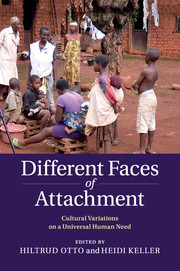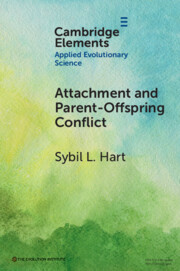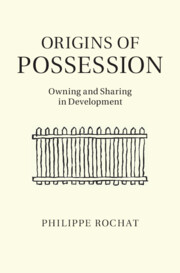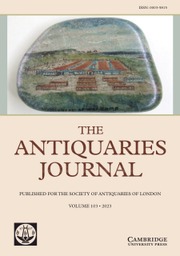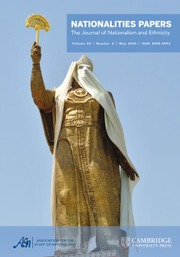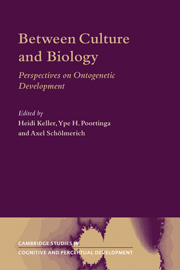Different Faces of Attachment
Cultural Variations on a Universal Human Need
£27.99
- Editors:
- Hiltrud Otto, Hebrew University of Jerusalem
- Heidi Keller, Universität Osnabrück
- Date Published: March 2018
- availability: Available
- format: Paperback
- isbn: 9781316617984
£
27.99
Paperback
Other available formats:
Hardback, eBook
Looking for an inspection copy?
This title is not currently available on inspection
-
Attachment between an infant and his or her parents is a major topic within developmental psychology. An increasing number of psychologists, evolutionary biologists and anthropologists are articulating their doubts that attachment theory in its present form is applicable worldwide, without, however, denying that the development of attachment is a universal need. This book brings together leading scholars from psychology, anthropology and related fields to reformulate attachment theory in order to fit the cultural realities of our world. Contributions are based on empirical research and observation in a variety of cultural contexts. They are complemented by careful evaluation and deconstruction of many of the underlying premises and assumptions of attachment theory and of conventional research on the role of infant-parent attachment in human development. The book creates a contextual cultural understanding of attachment that will provide the basis for a groundbreaking reconceptualization of attachment theory.
Read more- Challenges and reformulates the core assumptions of attachment theory
- Introduces cultural variations of attachment from an interdisciplinary perspective (anthropology, psychology and sociobiology)
- Contributions are based on empirical research and observation in a variety of cultural contexts
Reviews & endorsements
'A much-needed collection of evolutionary, anthropological and psychological accounts of early relationship formation from the majority world which differ from the classical Bowlby–Ainsworth attachment theory. It opens up a new agenda for research regarding early socio-emotional development.' Cigdem Kagitcibasi, Koç University, Istanbul
See more reviews'Dazzling in the range of cultural behaviors that relate to infant attachment and social development. The most serious attempt yet to integrate evolutionary adaptation, developmental universals, and cultural variation in attachment and caregiving behaviors.' Patricia M. Greenfield, Distinguished Professor of Psychology, University of California, Los Angeles
Customer reviews
Not yet reviewed
Be the first to review
Review was not posted due to profanity
×Product details
- Date Published: March 2018
- format: Paperback
- isbn: 9781316617984
- length: 336 pages
- dimensions: 230 x 153 x 20 mm
- weight: 0.5kg
- contains: 16 b/w illus. 7 tables
- availability: Available
Table of Contents
Foreword Michael Lamb
Introduction: understanding relationships. What we would need to know to conceptualize attachment as the cultural solution of a universal developmental task Heidi Keller
Part I. Attachment as an Adaptation: Evolutionary, Cultural, and Historical Perspectives:
1. Family relations among cooperative breeders: challenges and offerings to attachment theory from evolutionary anthropology Johannes Johow and Eckart Voland
2. Attachment theory as cultural ideology Robert A. LeVine
3. 'Babies aren't persons': a survey of delayed personhood David Lancy
Part II. Multiple Attachments: Allomothering, Stranger Anxiety, and Intimacy:
4. Maternal and allomaternal responsiveness: the significance of cooperative caregiving in attachment theory Courtney L. Meehan and Sean Hawks
5. Bonding and belonging beyond WEIRD worlds: rethinking attachment theory on the basis of cross-cultural anthropological data Birgitt Röttger-Rössler
6. Concentric circles of attachment in Pirahã: a brief survey Daniel L. Everett
7. Is it time to detach from attachment theory? Perspectives from the West African rain forest Alma Gottlieb
8. 'Don't show your emotions!' Emotion regulation and attachment in the Cameroonian Nso Hiltrud Otto
9. Family life as bricolage - reflections on intimacy and attachment in death Nancy Scheper-Hughes
Part III. Looking into the Future and Implications for Policy Development:
10. The socialization of trust: plural caretaking and diverse pathways in human development across cultures Thomas S. Weisner
11. The precursors of attachment security: behavioral systems and culture Vivian Carlson and Robin Harwood
Part IV. Conclusion Heidi Keller and Hiltrud Otto.
Sorry, this resource is locked
Please register or sign in to request access. If you are having problems accessing these resources please email lecturers@cambridge.org
Register Sign in» Proceed
You are now leaving the Cambridge University Press website. Your eBook purchase and download will be completed by our partner www.ebooks.com. Please see the permission section of the www.ebooks.com catalogue page for details of the print & copy limits on our eBooks.
Continue ×Are you sure you want to delete your account?
This cannot be undone.
Thank you for your feedback which will help us improve our service.
If you requested a response, we will make sure to get back to you shortly.
×
